'Nappies are like clothes, it's a fashion thing'
- Published
Ecopipo's nappies come in a wide range of bright colours and patterns
When Ixchel Anaya become pregnant aged 22, little did she know that it would spark a business idea that she would take global.
An interior design student at the time back in 2009, her newborn son would get bad rashes from disposable nappies.
Living in the Mexican city of Irapuato, 300km (186 miles) north west of the capital, Ixchel decided to try reusable, washable diapers instead.
But while there were plenty of options from Europe and the US that she could have bought over the internet, she was disappointed that she couldn't find any decent homegrown reusable nappies.
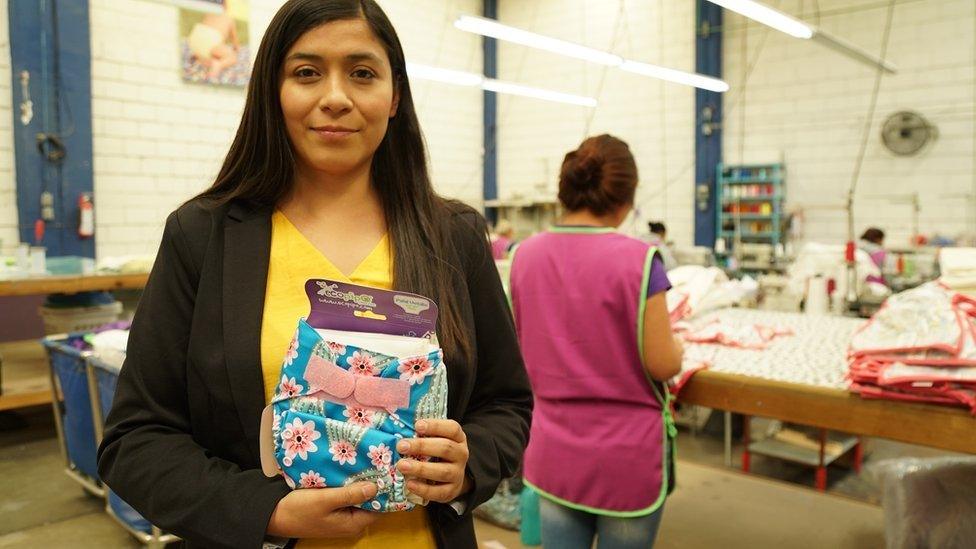
Ixchel's nappies come in a number of different sizes
So with the help of her grandmother she decided to make her own, playing around with various sizes and fabrics until she came up with a design that she was pleased with.
Friends who also had babies were keen on Ixchel's creations, so she started making more, selling a few at a time.
Looking back she says she was delighted with her money-making enterprise, because "since I was little I wanted to have a business, I'd sell everything you can think of, I'd sell the sweets out of pinatas".
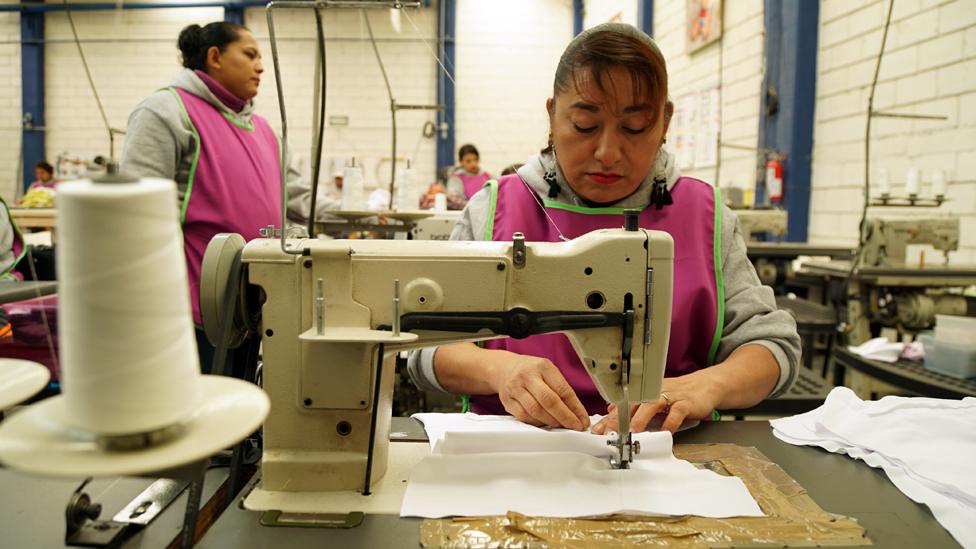
Ecopipo's factory employs 25 people
Soon Ixchel realised the business potential of her homemade nappies, so together with her husband they launched Ecopipo.
The name is a combination of the words "eco", as in ecological, and "pipo" which was the name of teddy bear handed down through the generations in her family.
Today the company is enjoying annual sales of $1.3m (£940,000), and exporting to countries around the world, including the UK and Canada.
On a busy Monday morning at Ecopipo's factory in Irapuato, Ixchel goes around chatting with some of her 25 employees.
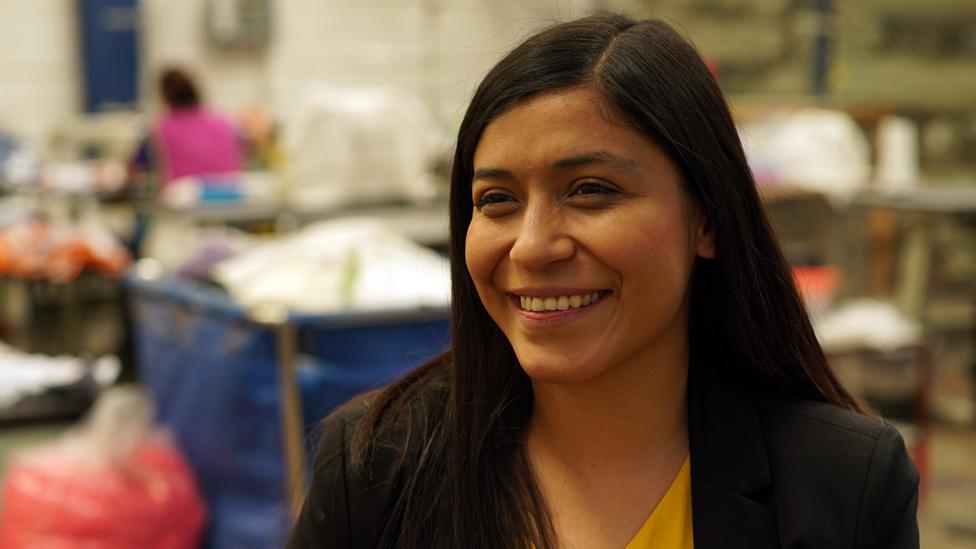
Ixchel has ambitious plans to grow the company
Seamstresses deftly stitch together bright fabrics, while a burly young man cuts neon pink Velcro patches.
It seems a smooth operation, but Ixchel admits to plenty of hurdles along the way, starting with a struggle to get any staff skilled enough to make the nappies.
For while Mexico has a large textiles industry, Ecopipo's tiny nappies require a more delicate type of sewing that many seamstresses in the company's home state of Guanajuato were not comfortable with.
So back in 2009 Ixchel's father literally had to knock on doors around town until he found "Mrs Yolis", Maria Yolanda Benitez, a motherly seamstress who Ms Anaya fondly says, "would make the things in my head into a reality".
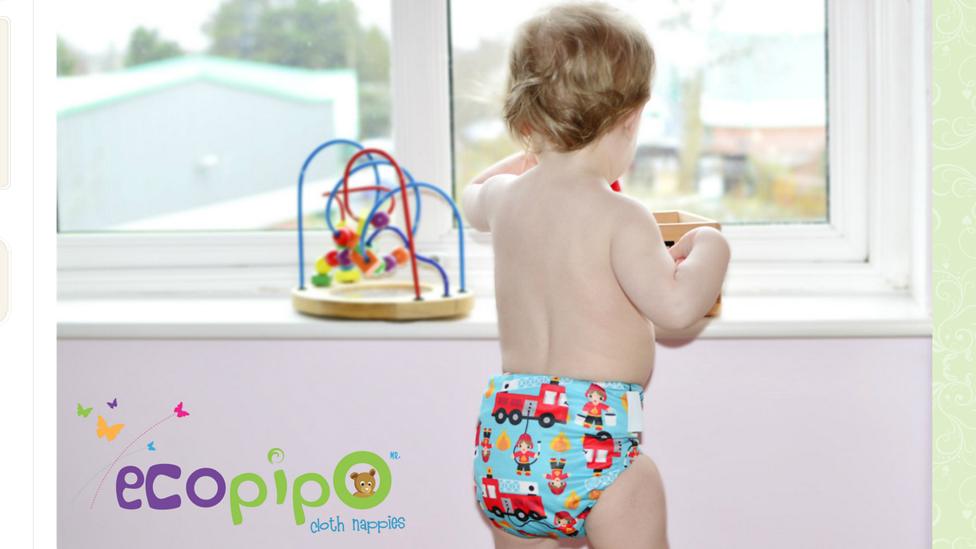
The business has expanded around the world thanks to its website and use of social media
Additional staff were then slowly trained up to be able to do the work.
Once nappy production on a commercial scale was underway, the next challenge for Ixchel was to reach customers without having the capital to set up a physical store anywhere.
The answer was to instead focus on ecommerce, and she quickly launched an Ecopipo website, and used social media to promote the brand. Within a year she was already getting orders from abroad.
"I was getting orders from Canada, which is so cool, you can reach anywhere with the internet," says Ixchel.
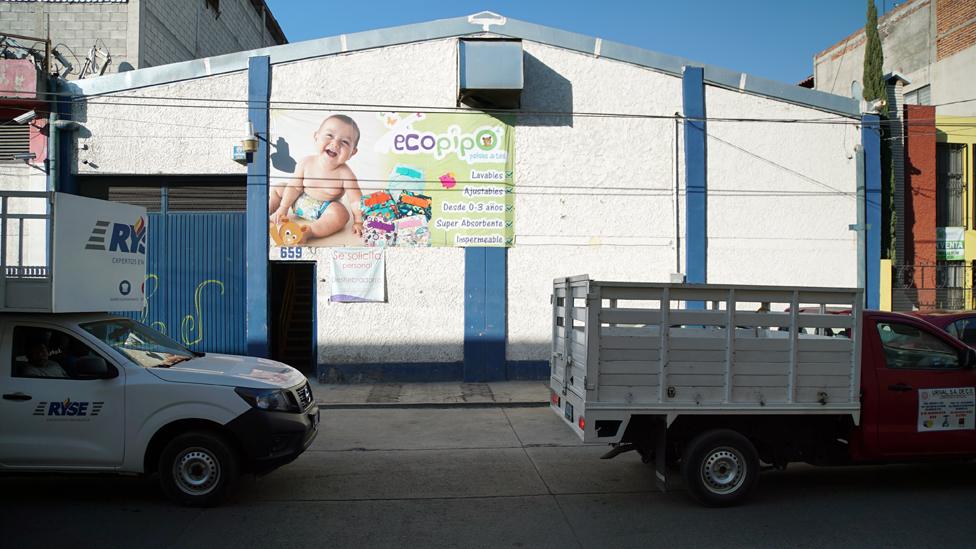
The small factory in Irapuato exports its nappies around the globe
"The marvellous thing about social media and the web is that there are no limits, and it is low cost compared to other forms of publicity, or setting up an office in another country."
Today Ecopipo still gets 90% of its sales via its website, with 20% exported. It now hires an external agency to help place Google adverts, and run its busy social media accounts.
It also exports to Spain, Belgium, Germany, Peru, Ecuador and Argentina.
The nappies themselves have a waterproof polyurethane outer layer, a soft polyester micro fleece inner layer, and absorbent inserts made from bamboo fibres. Available in a wide range of colours and patterns, they are fully washable.
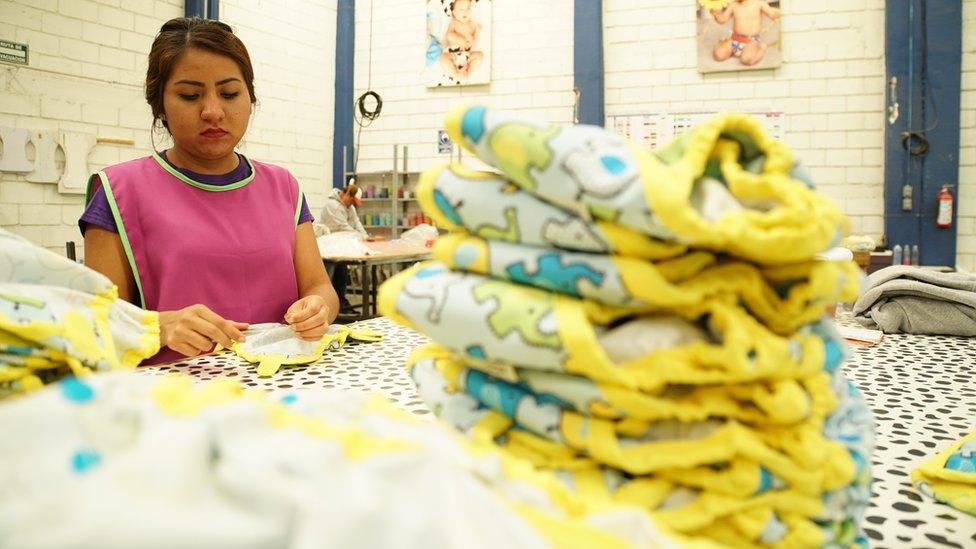
Ecopipo intially struggled to find staff who were skilled enough to make the nappies
While Ecopipo's nappies can seem expensive - they each cost around $18 (£13), and up to 20 are needed as a baby grows - Ixchel says this is more cost-effective than disposable nappies, and far better for the environment.
She says that when it comes to disposable nappies, a typical baby will use about 6,000 before he or she is potty trained, with each then taking at least 300 years to breakdown in a landfill.
"Imagine how many babies there are in the world, and how much waste that creates," she says.
To help break into European Union markets, and particularly the UK, Ixchel has been able to call on the help of her aunt Laura Finnegan, who lives in Northern Ireland, and works to promote the brand.


This is the latest story in a series called Connected Commerce, which every week highlights companies around the world that are successfully exporting, and trading beyond their home market.

Yet because nappies are so highly regulated in the EU, Ecopipo initially found it difficult to break in to the market.
"One of the first boxes of nappies we sent to the EU got stuck in customs for a year," says Ixchel.
"We had to get them certified that they aren't toxic. It took a year to pass all those tests."
Ecopipo also had to make sure all its labels met European requirements.
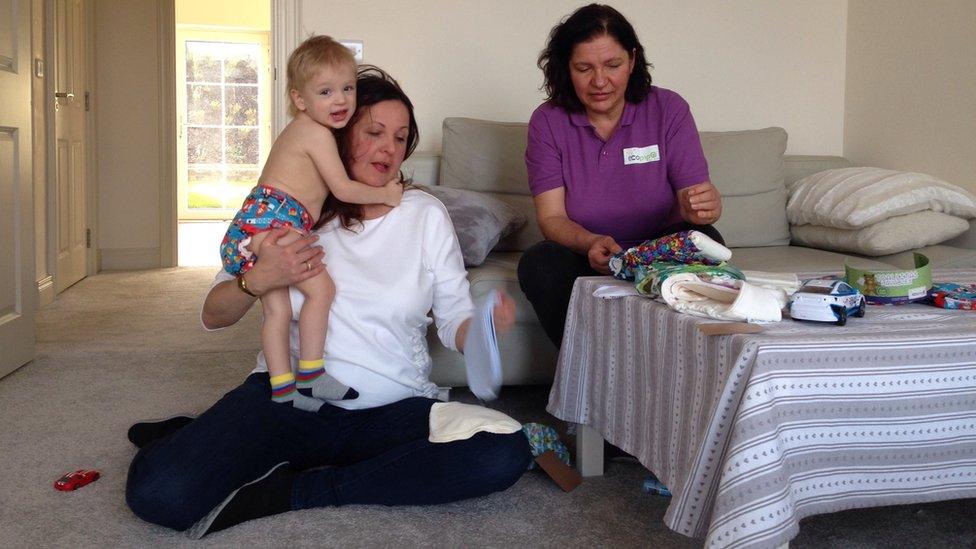
Laura Finnegan (right) is Ecopipo's representative for the UK and wider European region
Cecilia Montano, a foreign trade and customers partner, at the Mexican branch of accountancy giant Deloitte, says that using the internet to export enables small firms like Ecopipo to grow and thrive.
"Exporting is a terrific option for those kinds of companies to increase sales and to have access to better markets."
Back at Ecopipo it has branched out in recent years to also sell baby wipes, bibs and other accessories.
Ixchel, who now has four children, also scours the internet for trends and inspiration to help her create new colours and patterns for the nappies.
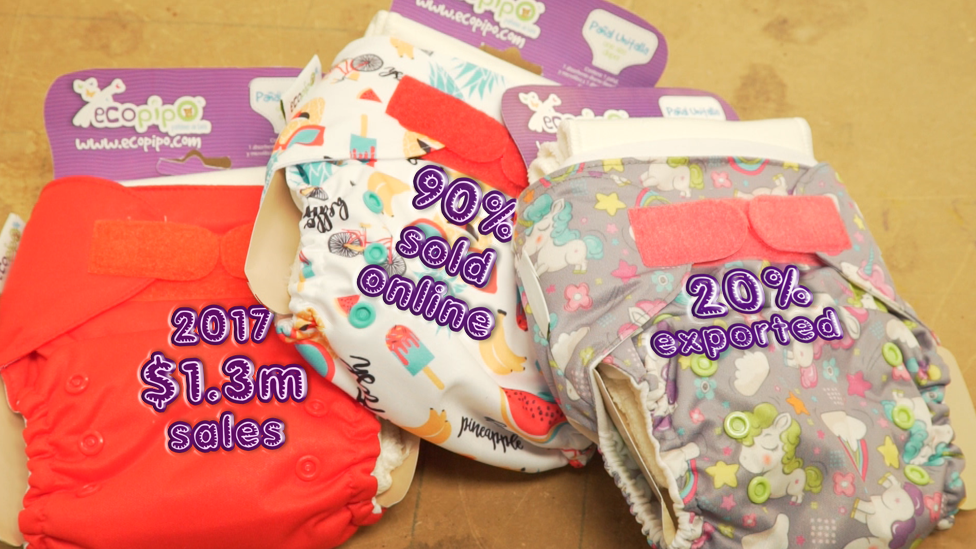
Ecopipo is very much an ecommerce business
"At the end of the day, nappies are like clothes, so it's a fashion thing," she says.
And as staff continue to busy themselves, with nappies taking shape at their sewing machines, Ixchel is thinking big these days.
"I want Ecopipo to be in every country where there are babies," she says.